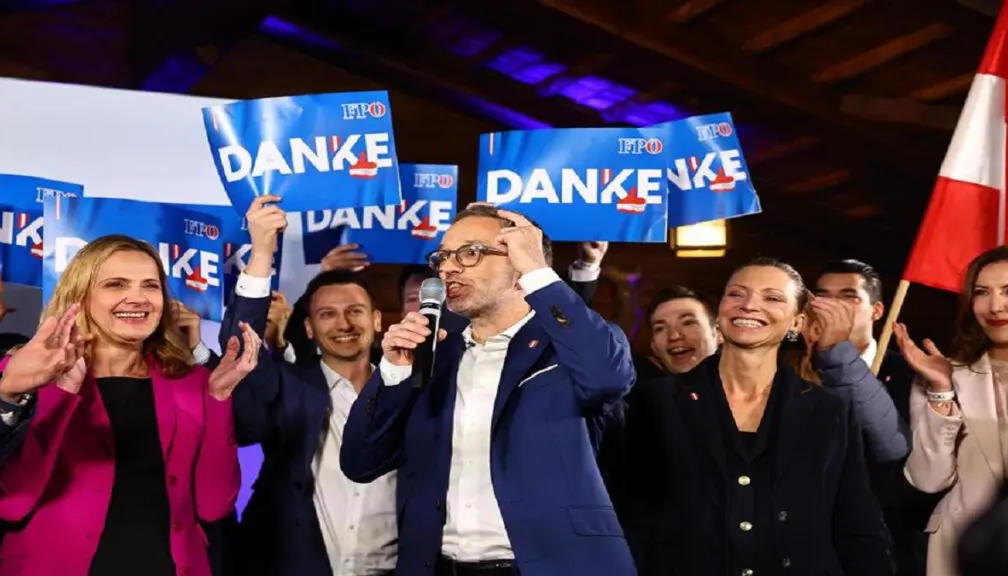
The FPÖ received congratulations from far-right parties in other nations, including Vox (Spain), National Rally (France), Party for Freedom (Netherlands), Alternative for Germany and Vlaams Belang or Flemish Belonging (Belgium). Photo: EFE
Vienna, September 30 (RHC)-- The Austrian Ministry of the Interior reported that the far-right Freedom Party (FPÖ) won the parliamentary elections this Sunday with 29.2 percent of the votes.
According to the ministry, the far-right party could obtain a total of 58 seats. In second place was the conservative Austrian People's Party (ÖVP) of current Chancellor Karl Nehammer. It won 26.5 percent of the vote and would receive 52 seats.
The Social Democrats (SPÖ) came in next with 21 percent of the vote and 41 seats.
After the results were announced, the leader of Austria's far-right party, Herbert Kickl, met with supporters in Vienna and told them that together they had made history. Meanwhile, Nehammer regretted to his supporters that they had not managed to catch up with the far-right.
With an ultra-conservative and nationalist ideology, the FPÖ has been part of the government during previous terms, but this is the first time it has won a vote at the national level.
According to Deutsche Welle, this victory does not guarantee Kickl the position of head of government and he could even be left out of a coalition cabinet, since no party wants to be associated with his political force, founded in 1956 by former Nazis.
After the victory was announced, the FPÖ received congratulations from representatives of far-right parties in other nations, including Santiago Abascal (leader of Vox, Spain), Marine Le Pen (National Rally, France), Geert Wilders (Party for Freedom, Netherlands), Alice Weidel (Alternative for Germany) and Tom van Grieken (Vlaams Belang or Flemish Belonging, Belgium).
According to press reports, the FPÖ obtained 13 percentage points more than in the elections to the National Council (lower house of parliament) in 2019.
The political party gained popularity after Kickl assumed its leadership and because of the indignation of its supporters with the handling of issues such as immigration, inflation and the COVID-19 pandemic.

